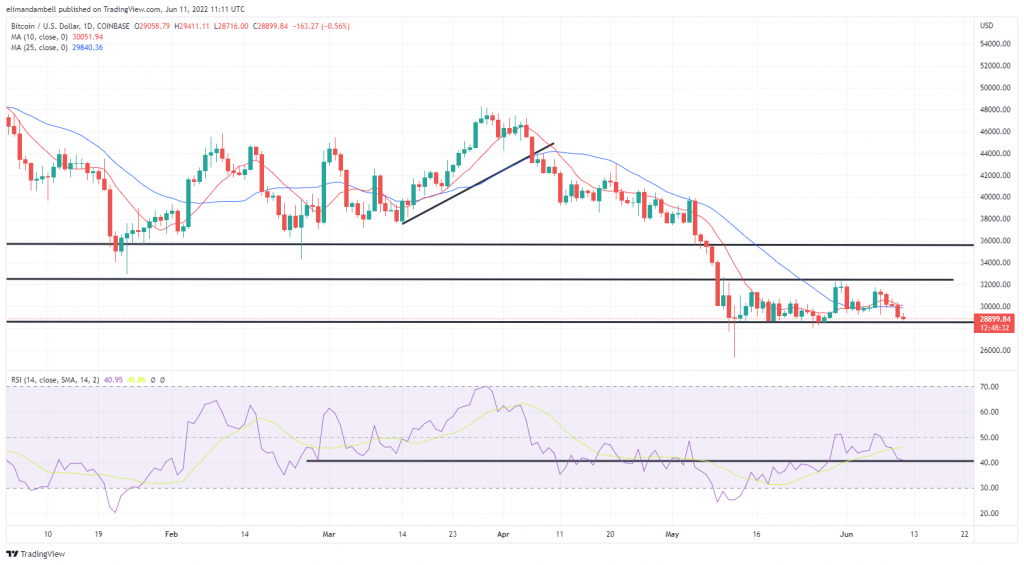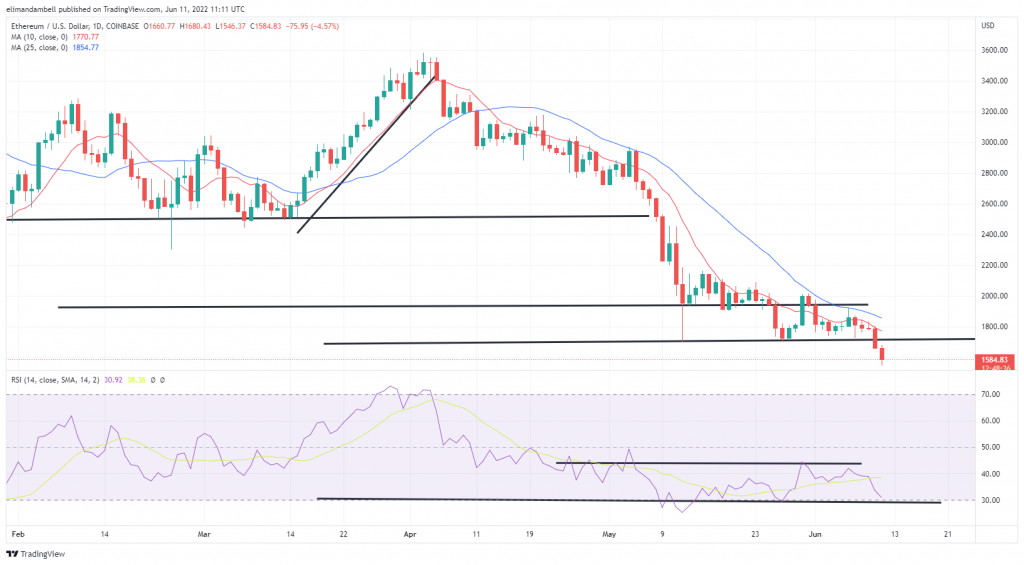
Crypto prices plunged as the weekend commenced, following yesterday’s U.S. inflation report, which came in at a 40-year high of 8.6%. ETH fell to its lowest point in fifteen months, while BTC dropped below $29,000.
Bitcoin
Following days of consolidation, BTC finally moved late on Friday into Saturday, as crypto prices responded to the latest inflation report.
Data from the United States showed that inflation came in at a 40-year high of 8.6%, which is higher than the 8.3% many had expected.
As such, investors seem to have panicked, and in turn liquidated some of their positions in crypto markets.

BTC/USD fell to an intraday low of $28,911.36 to start the weekend, taking prices to their weakest point in almost two weeks.
Despite the drop, prices still remain above support at $28,800, however some expect the sell-off to intensify as the weekend progresses.
Should we see the 14-day RSI move below its current support of 40.50, then we could see this expectation come into fruition.
Ethereum
Saturday saw ETH fall to its lowest point in over a year, as prices of the world’s second-largest crypto token plunged.
To start the weekend, ETH/USD fell by nearly $300, hitting a bottom of $1,583.10 earlier in today’s session.
This is the lowest level prices have hit since March last year, and comes as prices broke out of support at $1,720.

Following days of consolidation, price strength also waned, with the RSI seeing its floor of 36 easily broken.
As of writing, the indicator is now tracking at 30.96, which is close to a lower support level of 29.30.
Like bitcoin, some expect prices of ETH to fall lower in the coming days, and this floor in the RSI could be a point that bears are targeting.
Why does inflation have such an impact on crypto prices? Leave your thoughts in the comments below.
Image Credits: Shutterstock, Pixabay, Wiki Commons
Disclaimer: This article is for informational purposes only. It is not a direct offer or solicitation of an offer to buy or sell, or a recommendation or endorsement of any products, services, or companies. Bitcoin.com does not provide investment, tax, legal, or accounting advice. Neither the company nor the author is responsible, directly or indirectly, for any damage or loss caused or alleged to be caused by or in connection with the use of or reliance on any content, goods or services mentioned in this article.

